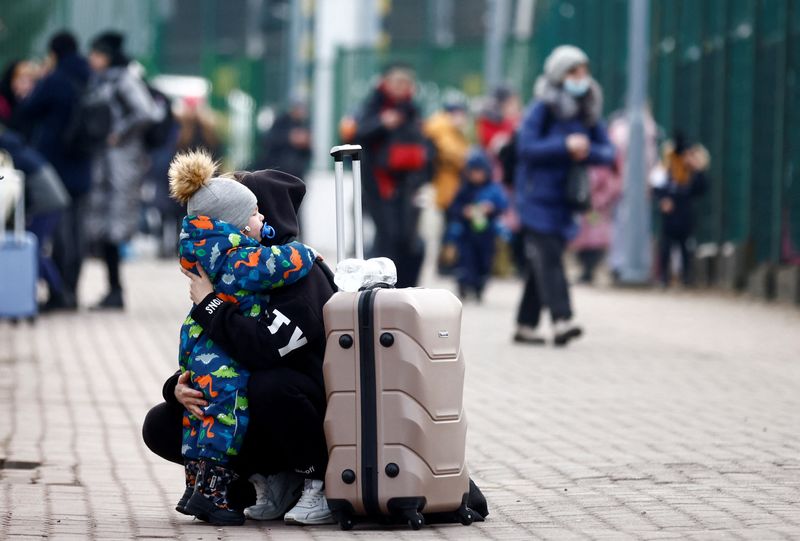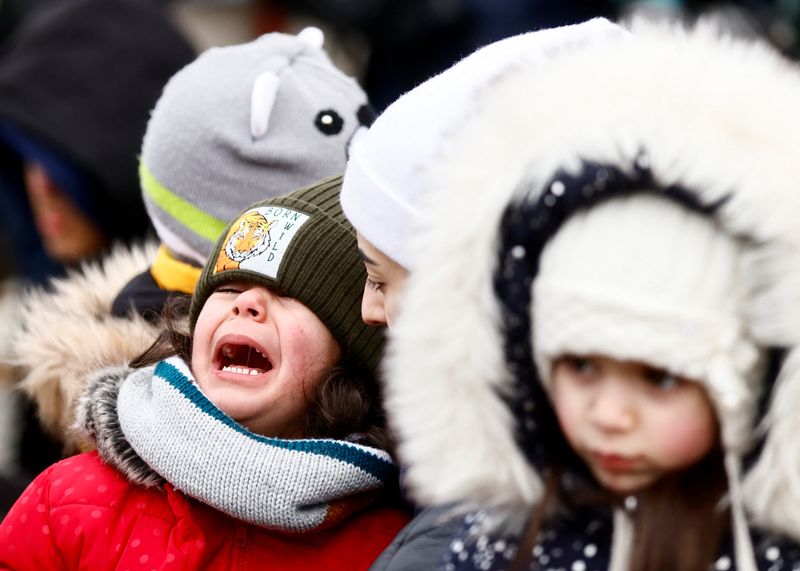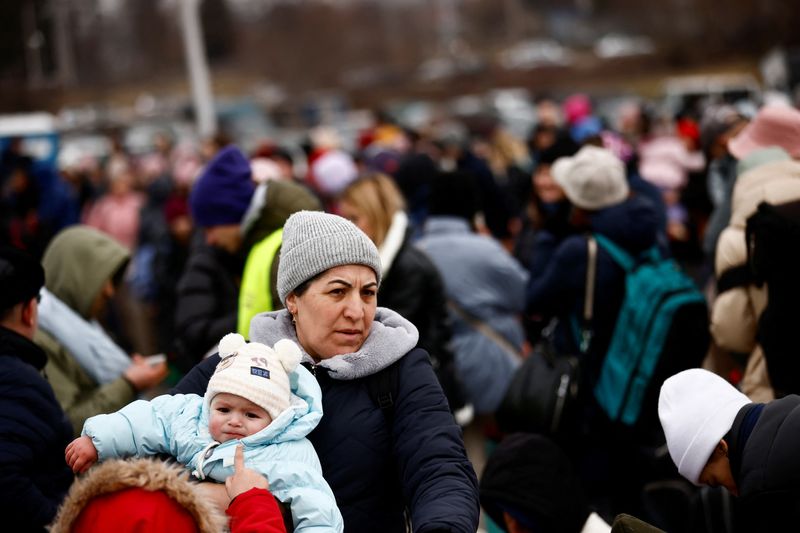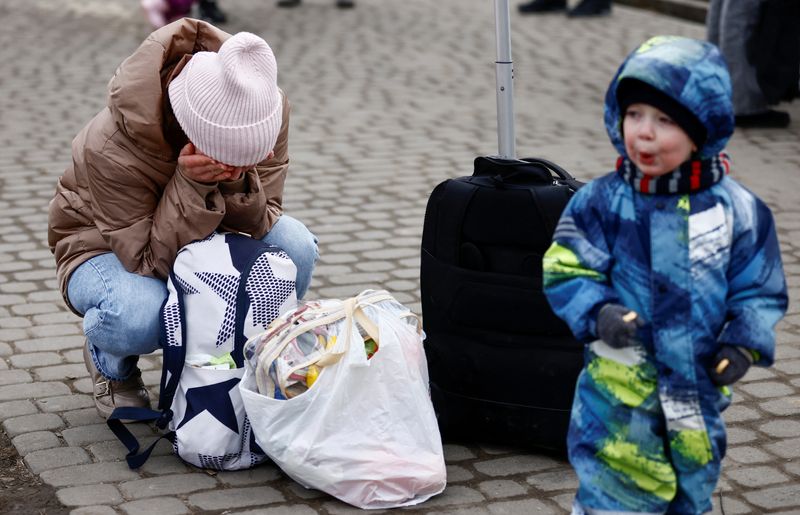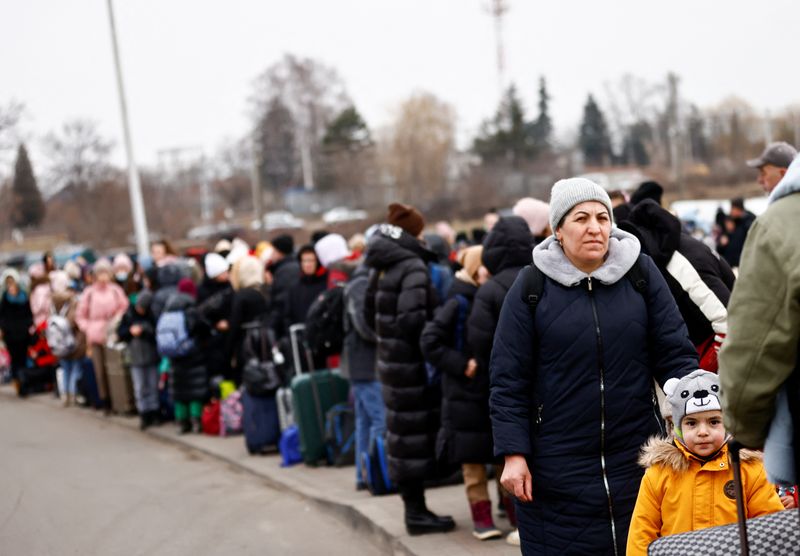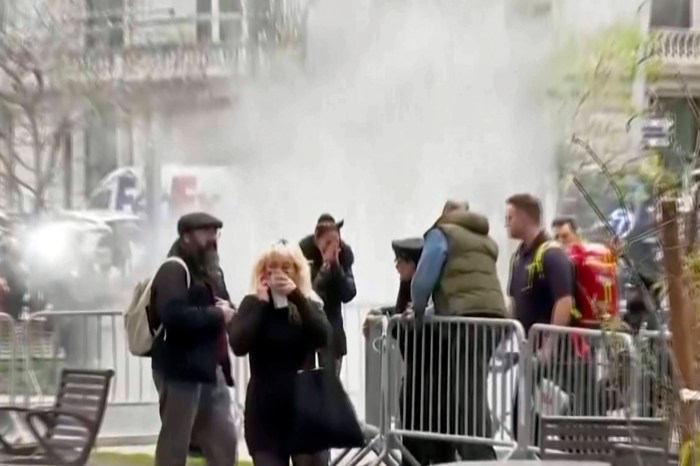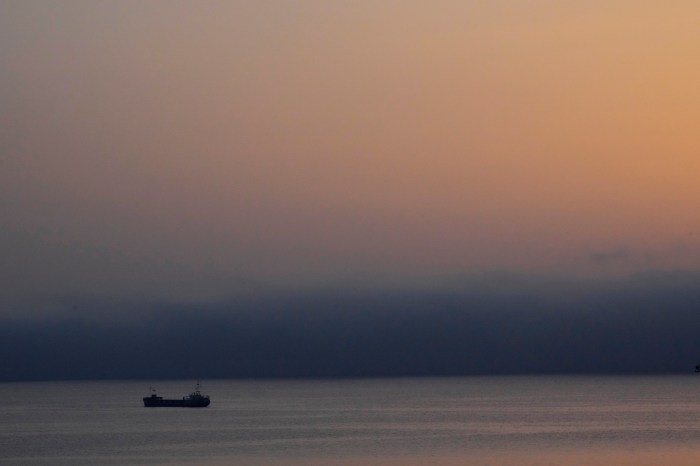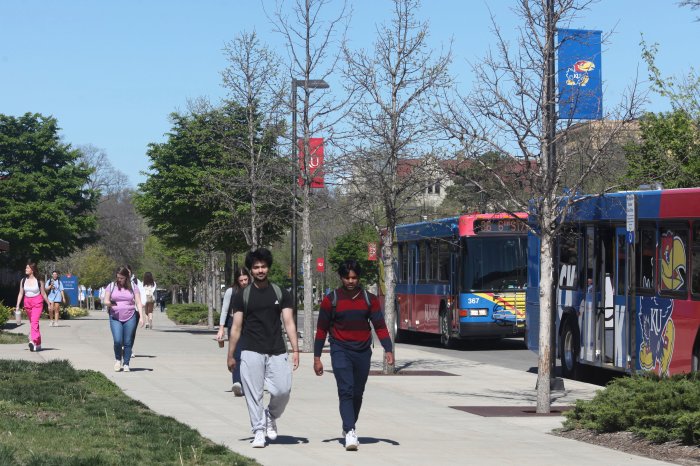VELKE KAPUSANY, Slovakia/SIGHETU MARMATIEI, Romania (Reuters) -For 7-year-old Bogdan, his first time on a train should have been a journey of excitement and wonder, not fleeing with his mother and little more than the clothes on their backs.
Valerya Totskaya, 27, and Bogdan boarded the evacuation train on Tuesday from their hometown, with their papers, some food, underwear and what they were wearing – a story echoed by countless families seeking a route out Ukraine.
“There was a river of people. Men pushed away other women and children to get their own on. It was of course horrible,” she told Reuters at a school-turned-shelter at Velke Kapusany, 10 km (6 miles) west of the Slovakian-Ukrainian border.
“It was very hot on the train. Some people tried to lock themselves in the compartments, but the conductor said people had to sit four on each bed, so there were 16 people in each compartment. Some slept on their bags in the corridor.”
They have travelled some 1,200 km (745 miles) in total, first by rail to Lviv from Zaporizhzhia — location of the nuclear power plant seized by Russian troops on Friday — Totskaya said, explaining how her son had not been on a train before.
She said they then went by bus to Uzhhorod, where a contact took them by van to the border, where Bogdan got cold and the family did not sleep for two days.
“He cried ‘Mom, I want to go home.’ I said: ‘my son, that is impossible, there is a war going on’.”
The U.N. refugee agency said on Thursday 1 million people had fled Ukraine in the week after Russia invaded the country.
Thousands more Ukrainians were making the journey on Friday as the fighting intensifies.
Svitlana Babatenko and her three children arrived on foot in Slovakia. Her husband stayed behind to fight while she, their two teenagers and 10-year-old son journeyed west to safety.
“Our town, Malyn, is now being bombed, planes are destroying houses. Our relatives stayed behind,” she told Reuters as they waited for a bus to take their group to Poland.
“Last night, their house was bombed, we do not have any connection with them. We do not know if they ran away.”
DONATIONS
After leaving Malyn, the family went to Vinnitsya, southwest of Kyiv. “Then (the fighting) started there too, so we decided to flee the country,” she said.
Moscow says the aim of its “special military operation” is to disarm its neighbour and capture leaders it calls neo-Nazis and a threat to its own security.
It has dismissed allegations of strikes on civilian targets, and on Thursday Russia and Ukraine agreed on the need for humanitarian corridors to help civilians escape.
The United Nations Office for the Coordination of Humanitarian Affairs said on Friday it had received no official written communication from Russia or Ukraine for assistance in setting up safe passage for civilians and supplies.
In Romania, at the Sighetu Marmatiei crossing, women and children arrived by car, bicycle and on foot on Friday, clutching plastic bags and roll-on suitcases as the snow fell.
One woman brushed away tears as she hugged a loved one waiting for her.
In Poland, a Polish non-governmental organisation has been helping coordinate the evacuation of orphans, with more arriving from Odessa, Kharkiv and other parts of Ukraine on Friday in addition to the 1,000 already rescued. They try to not to separate children from the same orphanage.
“I do my best to keep them together,” Aleksander Kartasinski, the head of the Happy Kids NGO, told Reuters.
Memories of Russian domination after World War Two run deep in the region, with many people looking to help how they can.
Some 73% of Poles were engaged in helping Ukrainians, mostly by donating food and hygiene products, according to a survey by pollster IQS for the Rzeczpospolita daily on Friday.
In Bulgaria, hotel owners on the Black Sea coast and small guesthouses throughout the country have offered free accommodation to Ukrainian refugees, while the state railway operator BDZ said they could travel for free.
(Additional reporting by Marek Strzelecki and Anna Wlodarczak-Semczuk in Warsaw, Anna Luiza Ilie in Bucharest, Tsvetelia Tsolova in Sofia, Jason Hovet in Prague; Writing by Gwladys Fouche; Editing by Hugh Lawson and Alison Williams)

